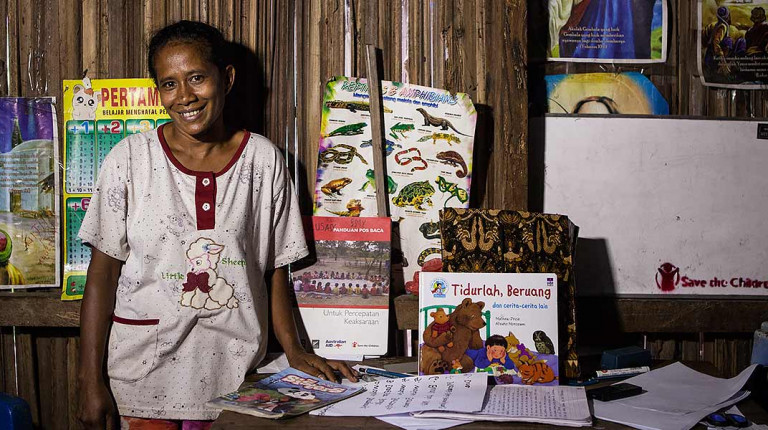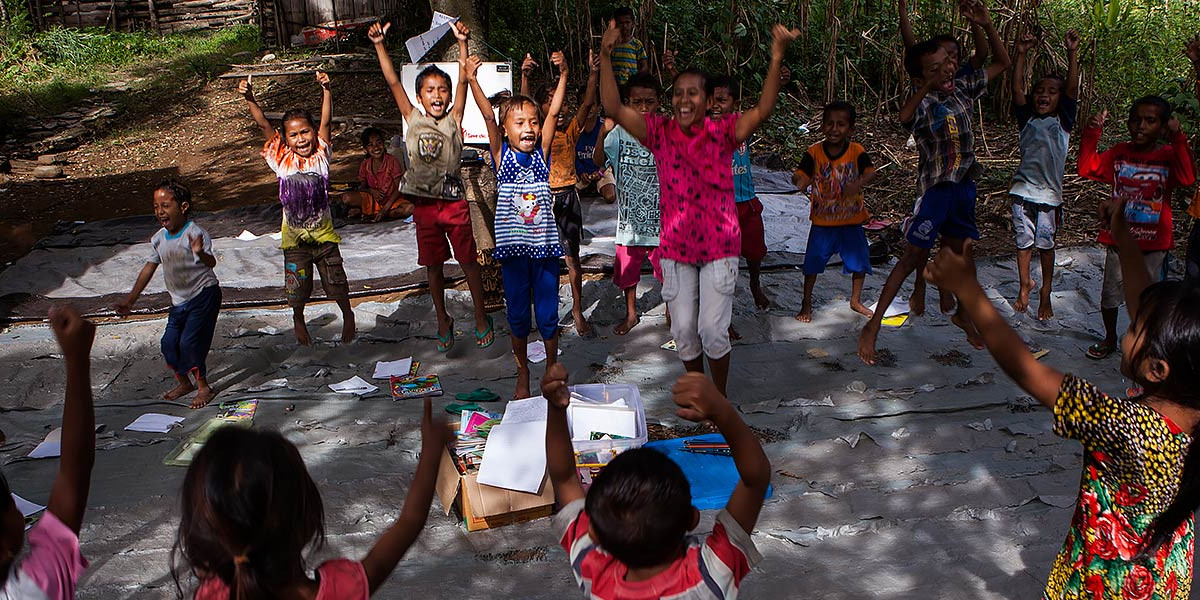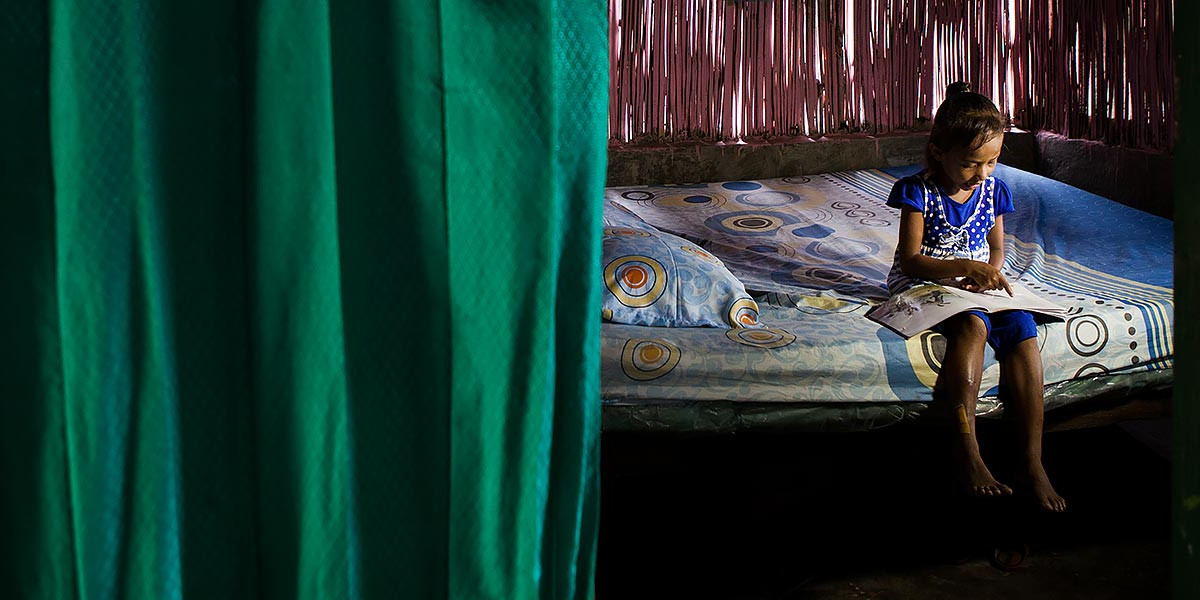Farah carries her shoes, bouncing along a kilometer dirt track and field in bare feet. She doesn’t want to ruin her only shoes. Her bag swings on her shoulder to the rhythm of her steps. Her tiny feet are covered with dirt and scars from constantly walking the long trails.
Farah is seven. She lives in Ai Toun village in Belu, a remote area in West Timor, Indonesia. Although Indonesia has experienced significant economic growth over recent years, this remote corner of Timor remains stricken by poverty.
Most of families here are poor farmers and the constant droughts mean they can only grow crops for four months of the year. They cannot afford their daily necessity let alone to buy books.
Save the Children New Zealand is funding a reading camp here, as part of a wider project to improve literacy for 8,000 early primary students in the Belu District in the Nusa Tenggara Timor, Indonesia. The reading camp is held once a week in a different location every time. Today the reading camp is being held near Ms. Emiliana’s house, the facilitator of reading camp.
Seven year old Farah meets her friends along the trail, and they begin to laugh and talk about the books they have read. Like every other girls, Farah loves fairytales. Her favourite stories are princess Sophia and Thumbelina. She also likes to read about fish.
When reading camp starts Farah and her friends rush towards the box which is filled with books, and start to squabble over the best book.
Farah always borrow a book to bring home and usually return it after two days so she can borrow another one. That’s how much she loves reading. Usually the other kids will return the book after only one week.
Ms. Emiliana says, giggling behind a raised palm.
The village where Farah lives is so remote and poor that the power lines installed years ago are still not connected to any electricity, and although electricity is still a luxury, that doesn’t stop Farah from reading in the evening as well as doing her homework. The oil lamp is the main source of light for most of households in Ai Toun village, including in Farah’s house.
Her grandmother Clara and her aunt Margaretha are her full time carers. Both her parents have left the district to find work, and Farah hasn’t seen them for months.
Clara never got the chance to complete her education, because of poverty. She only studied until the second grade of elementary school, but she hopes that Farah will have a better future.
The reading camp activity really helps children to learn how to read. Before they could not read or write, but now they can.




